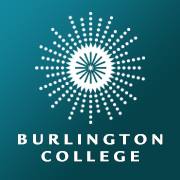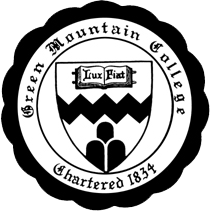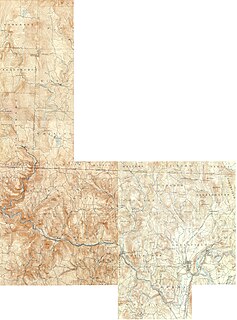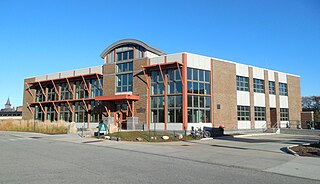
The University of Akureyri was founded in 1987 in the town of Akureyri in the northeastern part of Iceland. It is today a school of health sciences, humanities and social science, and a school of business and science. Over 2000 students attended the university in the autumn semester of 2014, around half of them through flexible learning, making the university the largest provider of distance education in the country. The University of Akureyri coordinates with other Icelandic Universities to operate the University Centre of the Westfjords located in Ísafjörður, which operates two master's degrees, one in Coastal and Marine Management and the other in Marine Innovation. Additionally, The University of Akureyri coordinates with other Nordic Universities for the West Nordic Studies and Polar Law Masters programs.

The University of Northern Colorado (UNC) is a public university in Greeley, Colorado. The university was founded in 1889 as the State Normal School of Colorado and has a long history in teacher education. The institution has officially changed its name three times, first to Colorado State College of Education, at Greeley on February 16, 1935, Colorado State College on February 11, 1957 and its current form since May 1, 1970. Approximately 10,000 students are enrolled in six colleges. Extended campus locations in are in Loveland, Denver/Aurora, and Colorado Springs. UNC’s 19 athletic teams compete in NCAA Division I athletics.

Burlington College was a private, nonprofit liberal arts college located in Burlington, Vermont, that offered associate, bachelor's, and master's degrees, as well as several professional certificates. Although regionally accredited by the New England Association of Schools and Colleges, the college was placed on probation in July 2014 for failing to meet the accreditor's standards regarding financial resources. The college announced on May 16, 2016, that it would cease operations on May 27.

Green Mountain College was a private liberal arts college in Poultney, Vermont, at the foot of the Taconic Mountains between the Green Mountains and Adirondacks. The college was affiliated with the United Methodist Church and offered a liberal arts undergraduate education with a focus on the environment, and some graduate degrees. For part of its history it was a women's college. It was founded in 1834 and closed at the end of the 2018–19 academic year.

Johnson State College was a small public liberal arts college in Johnson, Vermont. Founded in 1828 by John Chesamore, in 2018 it was merged with the former Lyndon State College to create Northern Vermont University.

Lyndon State College was a public liberal arts college at Lyndon, Vermont. In 2018, it merged with Johnson State College to create Northern Vermont University; the former campus of Lyndon State College is now the university's Lyndon campus. It was accredited by the New England Association of Schools and Colleges.

Champlain College is a private college in Burlington, Vermont. Founded in 1878, Champlain offers on-campus undergraduate and online undergraduate courses through Champlain College Online, along with online certificate and degree programs and master's degree programs, in more than 80 subject areas. Champlain enrolls 2,200 undergraduate students on its Burlington, Vermont campus from 44 states and 17 countries.

Union College is a private college in Barbourville, Kentucky. The college was founded in 1879 and is affiliated with the United Methodist Church. Union's approximately 825 undergraduate students represent 27 states and 9 countries.
The University of the Arctic (UArctic) is an international cooperative network based in the Circumpolar Arctic region, consisting of universities, colleges, and other organizations with an interest in promoting education and research in the Arctic region.

The Center for Cartoon Studies (CCS) is a two-year institution focusing on sequential art, specifically comics and graphic novels Located in the village of White River Junction, in the town of Hartford, Vermont, the Center offers a Master of Fine Arts degree, both one and two-year certificate programs, as well as summer programs, and is "the only college-level training program of its kind in the United States."

Deerfield River is a river that runs for 76 miles (122 km) from southern Vermont through northwestern Massachusetts to the Connecticut River. The Deerfield was historically influential in the settlement of western Franklin County, Massachusetts, and its namesake town. The Deerfield River is the Connecticut River's second longest tributary in Massachusetts, 2.1 miles (3.4 km) shorter than the Metropolitan Springfield's Westfield River.

The Faculty of Education at the Queen's University at Kingston in Canada was founded in 1907. Over 23,000 teachers and education professionals have graduated from the Faculty since 1907. The Faculty is located at Duncan McArthur Hall, an integrated educational complex that provides teaching and learning facilities, support services, and administrative offices under one roof on West Campus.

St. Johnsbury Academy (SJA) is an independent, private, coeducational, non-profit boarding and day school located in St. Johnsbury, Vermont, in the United States. The academy enrolls students in grades 9-12. It was founded by Thaddeus Fairbanks, and accepts the majority of its students through one of the nation's oldest voucher systems. It has a sister school in Jeju Island, South Korea.

The Rubenstein School of Environment and Natural Resources (RSENR) is the University of Vermont's natural resources college. The University of Vermont recognized the importance of providing educational opportunities in this field of study, initiating forestry courses in 1888. The first school, originally called The School of Natural Resources was established in 1973. The main home of the Rubenstein School of Environment and Natural Resources, the George D. Aiken Center opened in 1982. The building's name honors Vermont's distinguished late senator and governor.

St. Albert's College is an autonomous liberal arts college located at Kochi, India. It has twenty three degree courses, twelve postgraduate courses and seven research centres. The National Assessment and Accreditation Council (NAAC) has accredited the College at the "A" level with an aggregate score of 3.24. St. Albert's College (Autonomous) was ranked as one among the best hundred autonomous colleges in India.
The Vermont Commons School is an independent college preparatory school located in South Burlington, Vermont, serving grades 6–12.

The Winchendon School is an elite, coeducational, preparatory boarding and day school composed of two campuses; one in Massachusetts, and another in Herald Square, Manhattan, New York. Founded in 1926, The Winchendon School has an average classroom size of eight students, an enrollment of approximately 290 students, and a student to teacher ratio of 6:1

The School for International Training, widely known by its initials SIT, is a private non-profit regionally-accredited institution headquartered in Brattleboro, Vermont, United States. The institution has two main divisions. SIT Graduate Institute administers a wide range of internationally-focused master's degree programs as well as a Doctor of Education degree in Global Education. SIT Study Abroad administers undergraduate study abroad programs which combine field-based experiential learning with academic research or internship opportunities.

William Wyvill Fitzhugh IV is an American archaeologist and anthropologist who directs the Smithsonian’s Arctic Studies Center and is a Senior Scientist at the National Museum of Natural History. He has conducted archaeological research throughout the circumpolar region investigating cultural responses to climate and environmental change and European contact. He has published numerous books and more than 150 journal articles, and has produced large international exhibitions and popular films. Of particular note are the many exhibition catalogues he has had edited, which make syntheses of scholarly research on these subjects available to visitors to public exhibitions.
Northern Vermont University (NVU) is a public university in Johnson and Lyndon, Vermont. Established in 2018 by the unification of the former Johnson State College and Lyndon State College, the university offers over 50 Bachelor's degree programs and Master's degree programs.
















